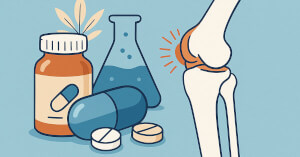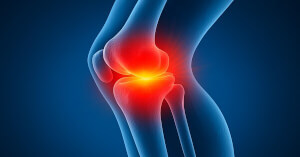
Resveratrol
Resveratrol is an antioxidant found in red wine and grapes that supports heart health, longevity, and protection against oxidative stress.
Resveratrol is a polyphenol found in grapes, red wine, and berries. It has gained attention for its potential anti-aging and cardiovascular benefits.
It activates cellular pathways related to longevity, including sirtuins, and may help protect against oxidative stress and inflammation.
Resveratrol is taken for heart health and cellular aging. While promising, its bioavailability is low, and effects may vary based on the form used.
Other names & forms of Resveratrol supplement : trans-resveratrol, polygonum cuspidatum extract, red wine extract, resveratrol supplement
Possible Benefits
By activating longevity pathways, Resveratrol delivers benefits for cardiovascular, metabolic, and cognitive health:
- Helps support Heart Health by improving vascular endothelial function and reducing inflammation.
- May aid Blood Sugar Support by enhancing insulin sensitivity and glucose uptake.
- Provides significant Anti-Aging effects by triggering cellular stress resistance and antioxidant defenses.
- May support Cognitive Health by protecting neurons from oxidative stress and maintaining synaptic function.
- Often used for Weight Loss support by influencing metabolic pathways and fat oxidation.
Side Effects
Resveratrol is praised for its anti-aging and cardiovascular benefits, but mild effects can appear as your body adjusts. Watch for:
- Possible gastrointestinal upset, nausea, diarrhea, or abdominal cramps
- Occasional headache or dizziness in sensitive individuals
- Temporary mild flushing or warmth sensation due to vasodilation
- Rare skin rash or itching, in those sensitive to polyphenols
- Mild changes in blood sugar, monitor if diabetic
Interactions
Possible interactions include:
- Anticoagulant and antiplatelet therapies: Resveratrol’s blood-thinning actions may compound warfarin or Garlic, increasing bleeding risk, monitor coagulation.
- Estrogen therapies: Its phytoestrogenic effects could interact with Progesterone or HRT; consult your provider if on hormone medications.
- Antidiabetic medications: Resveratrol may improve insulin sensitivity; when combined with insulin or Cinnamon, watch for hypoglycemia.
Precautions
Before adding Resveratrol to your regimen, confirm none of the following apply to you. If they do, consult your healthcare provider:
- Individuals on blood-thinning medications: May enhance anticoagulant effects; monitor clotting parameters
- People with hormone-sensitive conditions: Phytoestrogenic activity may influence; use cautiously
- Those with liver disease: Monitor liver enzymes if used long term
- Pregnant or breastfeeding women: Limited safety data; best to avoid high-dose supplements
- Patients scheduled for surgery: Discontinue at least two weeks prior, possible anesthesia interactions and bleeding risk
Studies
These studies provide scientific insights into Resveratrol benefits:
A 2011 randomized, placebo-controlled trial in 70 subjects with metabolic syndrome found 150 mg resveratrol daily for 3 months improved insulin sensitivity index by 25 % versus placebo .
A 2015 crossover study in 10 type 2 diabetics showed 1 g/day resveratrol acutely reduced postprandial glucose Tmax by 30 %, but had no effect on HbA1c over 4 weeks.
A 2018 meta-analysis of 11 RCTs concluded resveratrol modestly lowers systolic BP by 3 mmHg but yields no consistent lipid or inflammation benefits.
A small pilot RCT found 500 mg/day for 6 weeks did not improve cognitive performance in healthy older adults versus placebo .
Disclaimer: This page is for educational purposes and does not replace medical advice. If you're pregnant, have a condition, or take medication, speak with a qualified professional.










